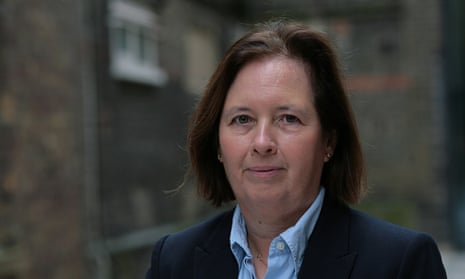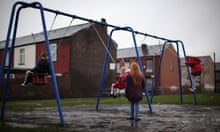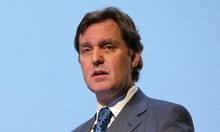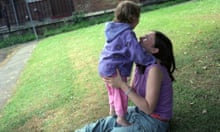Carmel McConnell first came across hungry schoolchildren as a business consultant 14 years ago. She’d visited some schools in east London while researching a book about creating a fairer society. “I’ll show you unfairness”, a headteacher remarked during one visit: look at the kids who turn up in class each morning with an empty stomach, having missed breakfast, and sometimes even the previous night’s meal.
Her initial reaction was shock and disbelief. Kids going hungry? In this country and this day and age? Why weren’t the parents feeding them? Wasn’t Tony Blair supposed to sort all this out? The next thing she did was buy a trolley-full of bagels from the supermarket to give to the schools where children went without breakfast. She kept up her one-woman food drop for a year.
“About halfway through [the year] I asked the schools ‘Is it helping?’ They said: ‘We’ve had some kids who are really persistent truants, and they’re now coming in just because we can give them tea and toast for breakfast. Some kids we thought were complete troublemakers were just angry and upset because they’d had no food since the day before. So it seemed that for the very small price of a breakfast you were going to get some schools in better shape and some kids in better shape.”
Encouraged by these early signs that she might be making a difference, she decided, in classic charity startup style, that something must be done. She remortgaged her house and started working with more schools. Despite knowing nothing about education or nutrition or charities, she set up Magic Breakfast in 2003. Now, the charity finds itself, like the food bank network Trussell trust, a reluctant recession-era charity growth phenomenon.
Hungry children are no longer a niche topic, but are at the centre of the debate around poverty and the cost of living crisis. Monday’s report by the Social Mobility and Child Poverty Commission found that one in six children are still living in poverty, that absolute child poverty increased by 300,000 between 2010-11 and 2012-13, and warned that child poverty was predicted to rise further without concerted action from politicians.
It’s a trend that Magic Breakfast recognises. In 2005 (when it won a Guardian small charity award), the charity delivered 70,000 breakfasts in 16 London primary schools and had a tiny waiting list; by the end of this year it will be working with 444 schools across the country, delivering 1.2m meals. There are now 300 schools on the waiting list.
What explains the growth? Poverty is the biggest driver of demand, she says; even working families are left behind by accelerating living costs and employment patterns that mean parents in low-income households may not be around at breakfast time. She estimates a million children in the UK arrive at school each morning too hungry to learn. “We see a very direct correlation between austerity and increasing child hunger in our schools.”
McConnell says holiday hunger is a growing problem too. Next on her agenda is Magic Breakfast 365, a pilot scheme to provide breakfast and leisure activities to children outside of school term-time, in 20 schools in two London boroughs, starting at Christmas.
Magic Breakfast grew initially with corporate help, from the likes of Quaker Oats and Tropicana. But the tipping point came last year, she reckons, when the school food plan (on whose steering group McConnell sat), recommended that all schools where over 35% of the pupils qualify for free school meals should provide breakfast. The charity won a £1m Department for Education contract this year to help set up provision in 184 schools.
Its website is full of positive testimony from schools that bears out McConnell’s claim that breakfast clubs improve pupil attendance, punctuality, behaviour and attainment. In a few cases Ofsted has acknowledged the contribution of the breakfast club to a school’s success. The Institute for Fiscal Studies is currently evaluating the impact of breakfast clubs, and McConnell is confident the data will confirm that breakfast provision delivers powerful educational health and wellbeing benefits.
Perhaps surprisingly, Magic Breakfast moves comfortably in government circles. It’s a Big Society award winner, and for the past 18 months has been No 10’s charity partner.
It’s a far cry from McConnell’s days as a 1980s radical feminist who dropped out of Sussex University to be a full-time anti-nuclear protester at Greenham common. McConnell sees what she does now as a natural extension of her youthful radicalism. She’s unfazed by criticisms that Magic Breakfast is too reliant on corporations, and believes it is possible to reconcile profits and principles. Social enterprises will change the world and take business with them, she says. “We are deep single issue campaigners. We will end hunger as a barrier to education. At our core, we want to ensure we get those children a decent meal.”
Curriculum vitae
Age 53
Lives North London
Status Civil partnership
Education Sacred Heart Convent Dagenham, east London; 1992-93 MBA City University, London.
Career 2001-present: founder and chief executive, Magic Breakfast charity; 1994-2000: consultant to business leaders on how to build more ethical businesses & trust with consumers; 1989-94: logistics project management, BT plc; 1987-88: northern India working on primary health care and community development; 1986-87: community radio station start up in London; 1985: working in a wholefood cafe, food co-ops in Leeds and fundraising for anti-deportation campaigns and the miners’ strike; 1984: US speaking tour to get US support to end nuclear weapons in Europe; 1981-83: full-time nonviolent protest at USAF Greenham Common; 1979-80: The Field magazine sales; 1977-79: marine cargo claims adjuster.
Public life Social entrepreneur of the year 2008; member, school food plan expert panel.
Interests Cooking, following my faith, music, walking dogs, open water swimming, West Ham.





Comments (…)
Sign in or create your Guardian account to join the discussion